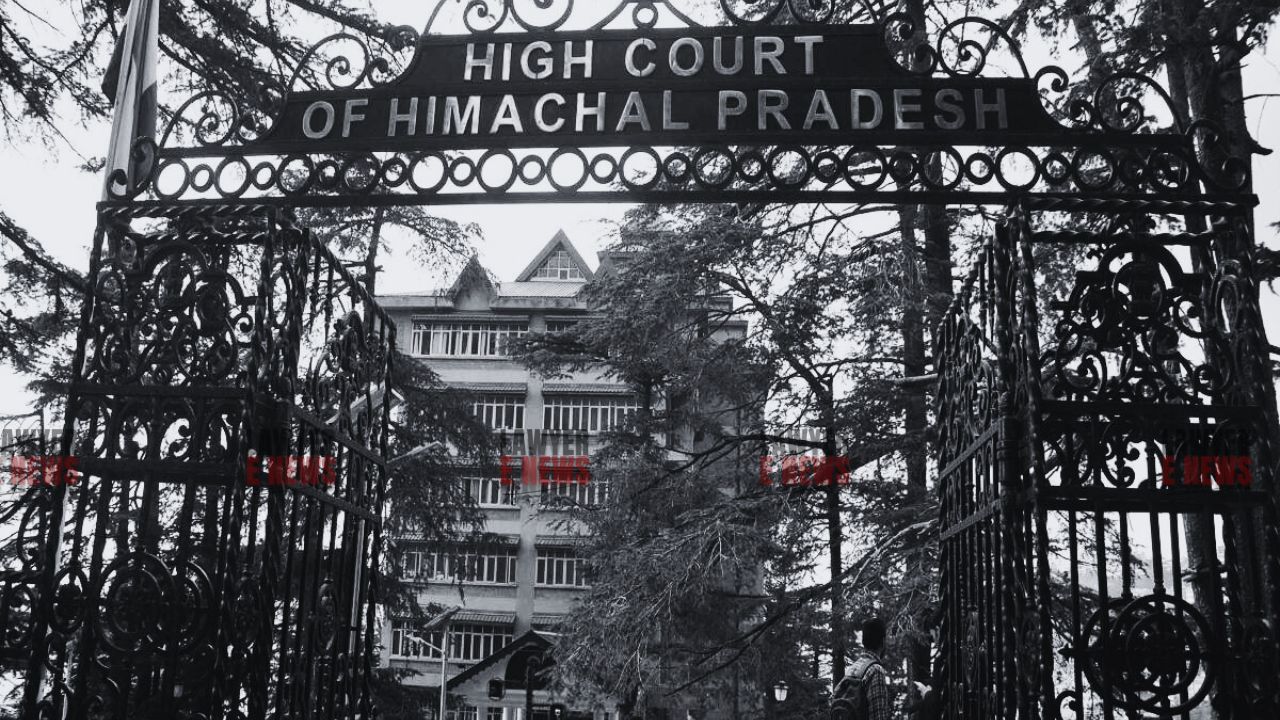-
by Admin
15 February 2026 5:35 AM



Himachal Pradesh High Court, comprising Chief Justice M.S. Ramachandra Rao and Justice Satyen Vaidya, delivered a significant ruling in Vijay Arora v. M/s Himalayan Vegefruit Ltd. (FAO(OS) No. 12 of 2024). The Court allowed an appeal against the denial of a temporary injunction, preventing the respondents from alienating or encumbering the suit property during the pendency of a suit for specific performance of an Agreement to Sell. The High Court found that the appellant had a prima facie case and that reciprocal obligations between the parties, including an endorsement extending the sale deed deadline, justified interim relief.
The appellant, Vijay Arora, entered into an Agreement to Sell with M/s Himalayan Vegefruit Ltd. on April 19, 2012, for the purchase of a property. The agreement included reciprocal obligations, with the respondents required to obtain government permissions under Section 118 of the Himachal Pradesh Tenancy and Land Reforms Act, 1972, clear existing liabilities, and vacate tenants from the property. Despite several extensions, including an endorsement extending the deadline for executing the Sale Deed to January 1, 2020, the respondents failed to perform their obligations, prompting the appellant to file a suit for specific performance and seek a temporary injunction to prevent alienation of the property.
The Court found that the appellant had established a prima facie case for interim relief. The Agreement to Sell involved reciprocal obligations, and the appellant could not be expected to pay the full balance without the respondents first fulfilling their duties, such as obtaining government permission and vacating the tenants. The Court observed:
"It is not open to the respondents to contend that the last date for execution of the Registered Sale Deed was 31.12.2014... There were reciprocal obligations on both parties."
The respondents’ admission that they had entered into a subsequent Agreement to Sell with a third party heightened the risk of irreparable harm to the appellant, warranting an interim injunction.
The respondents argued that the suit was time-barred under Article 54 of the Limitation Act, 1963, as it was filed nine years after the initial agreement. However, the Court rejected this, noting that time is generally not of the essence in real estate contracts unless explicitly stated. The endorsement dated December 16, 2014, extending the sale deed deadline to January 1, 2020, was held as binding on the respondents:
"The endorsement dated 16.12.2014 prima facie makes the obligations of each party reciprocal and not independent of each other."
The High Court reversed the trial court's order and granted a temporary injunction, restraining the respondents from alienating, transferring, or encumbering the suit property pending final disposal of the case. The Court found:
Prima Facie Case and Balance of Convenience: The appellant demonstrated a strong case based on reciprocal obligations, and the balance of convenience favored preventing any changes to the property’s status.
Time Not Essence of the Contract: The Court found no specific clause making time the essence of the contract, and the endorsement extending the deadline for the sale deed was binding.
Risk of Irreparable Harm: The respondents’ admission of a new Agreement to Sell with a third party posed a significant risk to the appellant, justifying the interim relief.
The Himachal Pradesh High Court allowed the appeal, granting a temporary injunction to protect the appellant’s interest in the suit property until the final resolution of the specific performance case. The decision underscores that courts must consider reciprocal obligations and the risk of irreparable harm when deciding whether to grant interim relief in specific performance cases.
Date of Decision: September 23, 2024
Case Title: Vijay Arora v. M/s Himalayan Vegefruit Ltd.
